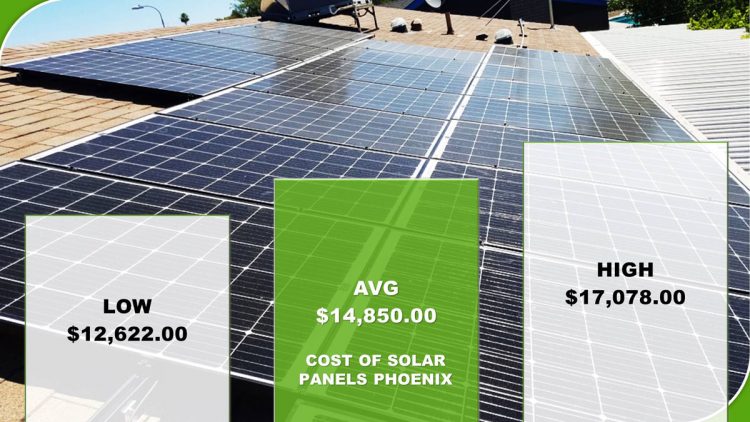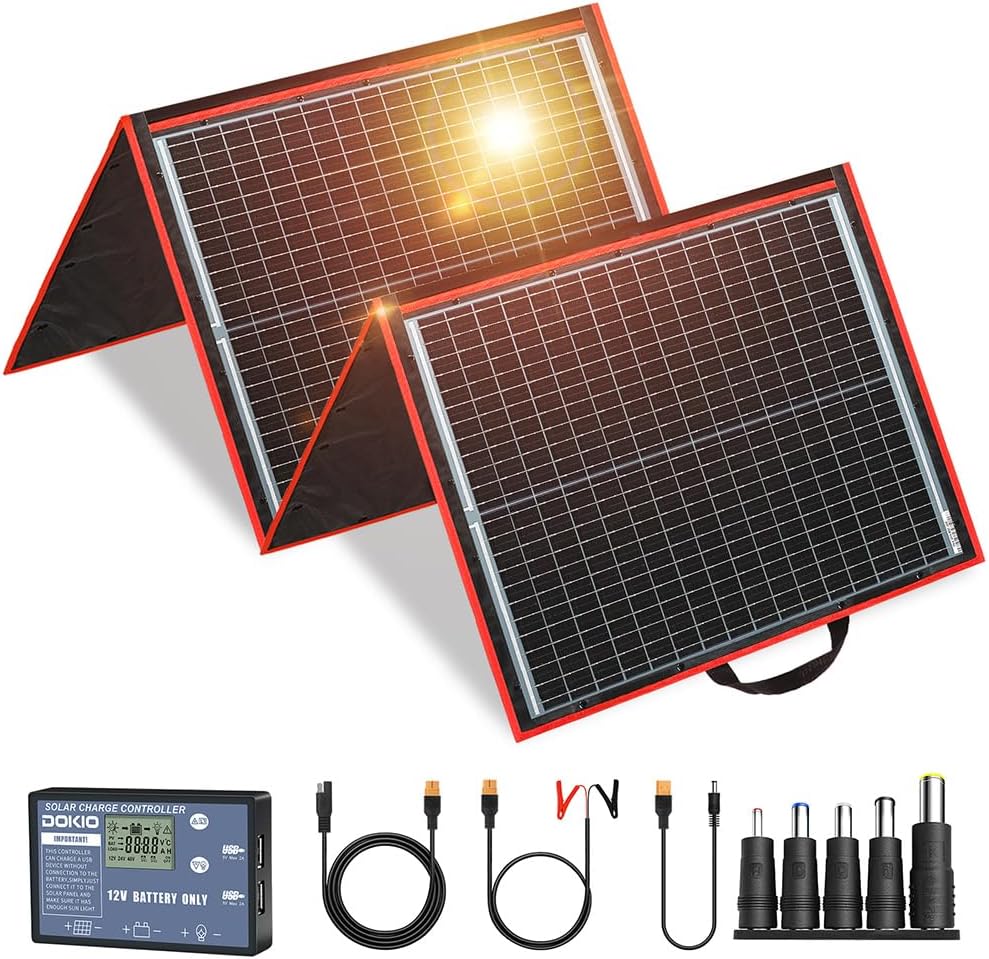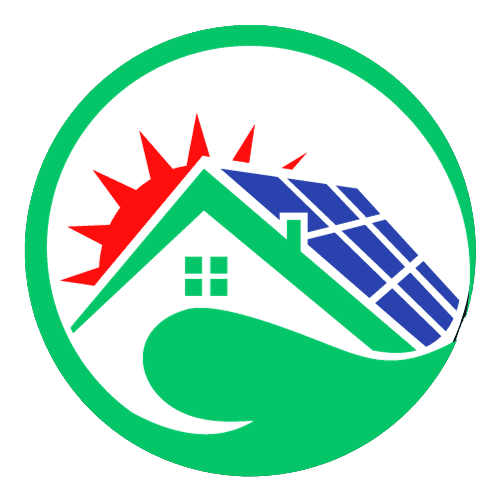Solar panels cost varies depending on the brand, size, and efficiency, but on average, the cost ranges from $10,000 to $30,000 for a residential installation. Factors such as location, available incentives, and the complexity of the installation can also affect the overall cost.
Installing solar panels is a long-term investment that can provide significant savings on electricity bills over time. In addition, solar panels are an eco-friendly option that helps reduce reliance on fossil fuels and decrease carbon emissions. As the cost of solar panels continues to decrease and technology improves, more homeowners are considering harnessing the power of the sun for their energy needs.

Realizing How Much Do Solar Panels Cost
The cost of solar panels is a crucial consideration for those interested in harnessing renewable energy and reducing their carbon footprint. By understanding the various factors that contribute to the cost, you can make an informed decision about the best solar panels for your needs. In this article, we will explore the initial purchase price range, variations by solar panel types and brands, and the additional gear required for a successful solar panel installation.
Initial Purchase Price Range
Solar panel prices can vary significantly based on several factors such as panel efficiency, size, brand, and quality. On average, you can expect to pay anywhere from $1,459.99 to $7,097.39 for a complete solar panel installation. Keep in mind that these prices may be subject to discounts and promotions, so it’s always worth comparing different options to find the best deal.
Variations By Solar Panel Types And Brands
The cost of solar panels can also vary depending on the type and brand you choose. Monocrystalline solar panels, known for their high efficiency, tend to be more expensive compared to polycrystalline or thin-film panels. For example, Harbor Freight Tools offers low-priced options that are quick and easy to set up, while InsureMy provides affordable panels without compromising on quality. It’s important to evaluate the specific requirements and budget constraints before making a final decision.
Additional Gear: Inverters, Batteries, And Mounting Hardware
Aside from the solar panels themselves, there are additional components necessary for a complete solar panel system. These include inverters, batteries, and mounting hardware. The direct current (DC) supplied by the panels is converted by inverters into alternating current (AC) suited for residential usage. Batteries store excess energy for use during times when the sun is not shining. Mounting hardware, such as brackets and rails, ensures the panels are securely and optimally positioned for maximum sunlight exposure.
- Efficient MPPT controller: Provides versatile wiring options.
- Excellent power and efficiency: Ensures long-lasting durability.
- Works best as part of a larger system: Ideal for integrating with other solar components.
- Completely waterproof: Suitable for RV installations.
Remember to budget for these additional components when estimating the total cost of your solar panel installation.

Credit: powersolarphoenix.com
Factors Affecting Solar Panel Costs
Solar panel costs can vary significantly based on several key factors. Understanding these factors will help you make an informed decision when considering solar panel installation. The following factors play a crucial role in determining the overall cost of your solar panel system:
Region-specific Pricing: Why It Differs
The cost of solar panels can vary depending on your geographical location. Different regions have different market conditions, labor costs, and regulatory requirements, which can all influence the pricing of solar panel systems in that area.
Moreover, the amount of sunlight your region receives can also impact the cost. Sunnier regions may require fewer solar panels to generate the desired amount of electricity, resulting in lower costs compared to regions with less sunlight.
Roof Size And Installation Complexity
The size of your roof and its complexity can affect solar panel costs. Larger roofs can accommodate more panels, allowing for greater energy generation. On the other hand, smaller roofs may require more complex installation techniques, such as tilt mounting or custom racking systems, which can increase the overall installation cost.
Solar Panel Efficiency And Capacity
The efficiency and capacity of solar panels play a significant role in determining their cost. High-efficiency solar panels can convert a greater percentage of sunlight into usable electricity, resulting in increased energy production. However, these panels tend to be more expensive compared to lower-efficiency options.
Similarly, higher-capacity solar panels can generate more electricity, reducing the number of panels required for your system. While they may come at a higher upfront cost, they can provide long-term savings by reducing installation and maintenance expenses.
Impact Of Local Subsidies And Tax Credits
Many regions and countries offer incentives, subsidies, and tax credits to promote the adoption of solar energy. These incentives can significantly reduce the overall cost of solar panel installation.
By taking advantage of local subsidies and tax credits, you can offset a portion of the initial investment required for the solar panel system. It is essential to research and understand the specific incentives available in your area to get a more accurate estimate of the total cost.
Calculating Per Square Foot Expenses
When it comes to determining the cost of solar panels, one important factor to consider is the per square foot expenses. Calculating this cost allows homeowners to have a better understanding of the investment required to switch to solar energy. In this section, we will explore the solar panel prices per square foot, cost differences between rooftop and ground-mounted systems, as well as labor costs and the time frame for installation.
Solar Panel Prices Per Square Foot
Understanding the solar panel prices per square foot is key to determining the overall cost of a solar panel system. The price per square foot can vary depending on various factors such as the type of solar panels, their efficiency, and the manufacturer.
| Type of Solar Panel | Price per Square Foot |
|---|---|
| Monocrystalline | $X.XX |
| Polycrystalline | $X.XX |
| Thin-Film | $X.XX |
These figures are just averages and can vary depending on the specific requirements of your solar panel system. It is important to consult with a solar panel installer to get an accurate estimate.
Cost Differences Between Rooftop And Ground-mounted Systems
The cost of installing solar panels can also vary depending on whether you choose a rooftop or ground-mounted system. Rooftop installations are generally more cost-effective as they utilize existing space and infrastructure. However, ground-mounted systems may require additional materials and labor, resulting in higher costs. Here are some approximate cost differences:
- Rooftop System: $X.XX per square foot
- Ground-Mounted System: $X.XX per square foot
Again, these figures are approximate and can vary based on the specific requirements of your installation. It is advisable to consult with a solar panel installer to get an accurate cost estimate.
Labor Costs And Time Frame For Installation
In addition to the cost of solar panels, it is essential to consider the labor costs and the time frame for installation. The labor costs will depend on the complexity of the installation, the number of panels, and the location of your property. On average, solar panel installation can take anywhere from one to five days.
It is important to note that the labor costs are usually included in the overall installation cost quoted by solar panel companies. However, if you are considering a DIY installation, it is crucial to factor in the additional time and effort required.
To get an accurate estimate of labor costs and the time frame for installation, it is recommended to consult with multiple solar panel installers and obtain detailed quotes.
Savings And Roi Of Solar Panels
Investing in solar panels can bring significant savings over time and provide a strong return on investment (ROI). Let’s explore the various aspects that contribute to the financial benefits of solar panel installations.
Projecting Energy Savings Over Time
One of the primary advantages of solar panels is the potential for long-term energy savings. By harnessing the power of the sun, homeowners can significantly reduce their monthly electricity bills. The amount of energy you can save depends on various factors such as the size of the solar panel system, your location, and your household’s energy consumption.
To estimate your potential energy savings, you can use online solar savings calculators. These tools take into account your location and energy usage to provide an approximate projection of your savings over time. By analyzing the projected energy savings, you can get a clearer picture of how solar panels can positively impact your finances.
Analysis Of Solar Panels’ Lifespan And Warranty
Another important factor to consider when assessing the savings and ROI of solar panels is their lifespan and warranty. Solar panels are designed to last for several decades, with an average lifespan of around 25 to 30 years. This long lifespan ensures that you can continue to benefit from energy savings for an extended period.
Additionally, solar panel manufacturers provide warranties that cover any potential defects or performance issues. These warranties typically range from 25 to 30 years, providing homeowners with peace of mind and protection against any unexpected damages or faults. By considering the lifespan and warranty of solar panels, you can better evaluate their long-term financial benefits.
Return On Investment (roi) Estimation
To determine the financial viability of installing solar panels, it’s crucial to estimate the return on investment (ROI). The ROI calculation takes into account the initial cost of the solar panel system and the potential energy savings it can generate over its lifespan.
Here’s a simple formula to estimate the ROI:
ROI = (Energy Savings - Initial Cost) / Initial Cost
For example, if the initial cost of the solar panel system is $10,000, and it generates $1,000 in energy savings per year, the ROI would be calculated as:
ROI = ($1,000 - $10,000) / $10,000 = -0.9 (or -90%)
A negative ROI indicates that the initial cost of the solar panel system exceeds the energy savings it can generate. However, most solar panel systems have positive ROI values and can provide considerable financial benefits over their lifespan.
It’s important to note that various factors may influence the ROI, such as government incentives, tax credits, and local utility rates. Consulting with a solar panel expert or installer can help you accurately estimate the ROI based on your specific circumstances.
In conclusion, solar panels offer substantial savings and a promising ROI. By projecting energy savings, analyzing the lifespan and warranty, and estimating the ROI, you can make an informed decision about installing solar panels and enjoy the financial benefits they bring in the long run.

Finding The Best Solar Panel Deals
When it comes to investing in solar panels, finding the best deals is essential. Not only will you save money upfront, but you’ll also enjoy long-term savings on your energy bills. However, with so many options available, it can be overwhelming to navigate the marketplace. In this section, we’ll discuss the importance of getting multiple quotes, how to evaluate quotes based on price and quality, as well as understanding the fine print in solar panel contracts. By following these steps, you’ll be on your way to finding the best solar panel deals that meet your budget and energy needs.
Importance Of Getting Multiple Quotes
When it comes to purchasing solar panels, it’s crucial to get multiple quotes from different providers. By obtaining several quotes, you can compare the prices, warranties, and installation services offered by different companies. This not only helps you find the best price, but it also allows you to assess the quality of the products and services provided.
Getting multiple quotes enables you to gather a more comprehensive understanding of the market and helps you avoid overpaying for your solar panel system. It’s recommended to get at least three quotes to ensure you have a range of options to choose from.
Evaluating Quotes: Price Vs. Quality Comparison
When evaluating quotes, it’s important to consider both the price and the quality of the solar panels being offered. While it may be tempting to solely focus on the price, it’s crucial to assess the overall value of the system. A lower-priced solar panel may not necessarily be the best option if it compromises performance or durability.
Consider the efficiency rating of the solar panels, as higher efficiency panels will generate more electricity for your home. Additionally, look into the warranty offered by the manufacturer, as it reflects their confidence in the product’s longevity. Evaluating the reputation and customer reviews of the provider is also essential to ensure they have a track record of delivering quality products and services.
Understanding The Fine Print In Solar Panel Contracts
Before committing to a solar panel system, it’s crucial to thoroughly review and understand the terms and conditions outlined in the contract. Pay close attention to any clauses related to warranties, maintenance, and performance guarantees. Make sure you understand the process of filing a warranty claim and what is covered under the warranty.
Additionally, be on the lookout for any hidden fees or potential costs that may arise during the installation process. Understand the payment plan as well as any financing options that may be available to you.
Taking the time to understand the fine print will help you avoid any surprises and ensure a smooth and transparent transaction.
In conclusion, finding the best solar panel deals requires obtaining multiple quotes, evaluating them based on price and quality, and understanding the fine print in contracts. By following these steps, you can make an informed decision, ensuring that you not only get the best price but also the best value for your investment. With solar panels becoming increasingly popular, taking the time to find the best deals will not only benefit your wallet but also contribute to a greener and more sustainable future.

Credit: Youtube
FAQs Of How Much Do Solar Panels Cost
How Much Is A Solar System For A 2000 Sq Ft House?
A solar system for a 2000 sq ft house typically costs around $15,000 to $30,000, depending on factors such as location, type of panels, and installation requirements.
What Is The Average Cost Of A 1 Solar Panel?
The average cost of one solar panel ranges from $130 to $4,500, depending on factors such as efficiency, durability, and brand. The installation of solar panels can take anywhere from one to five days, with an average of three days. Solar panels help save energy and reduce electricity costs. Forbes
Is Solar Really Worth The Money?
Solar is definitely worth the money as it offers affordable options without compromising quality. It may have slightly lower efficiency compared to other panels, but it provides excellent power and efficiency with long-lasting durability. The most significant benefit is the potential to save on electricity costs.
How Many Solar Panels Do You Need To Power A House?
To power a house with solar panels, the number needed depends on various factors like energy usage, location, and panel efficiency. Generally, a typical home requires 20-30 solar panels, producing 5-10 kilowatts of power.
Conclusion
The cost of solar panels can vary depending on various factors such as the size of the system, installation variables, and the type of panel chosen. It’s important to consider the long-term benefits of installing solar panels, such as energy savings and lower electricity costs.
While there may be an upfront investment, the potential for significant savings in the long run makes solar panels a worthwhile consideration for homeowners. Additionally, exploring different options and comparing prices can help ensure finding an affordable yet efficient solution for harnessing solar energy.
So, take the time to research and determine the best solar panel option that fits your needs and budget.

